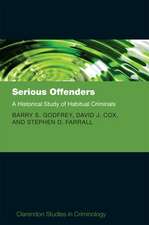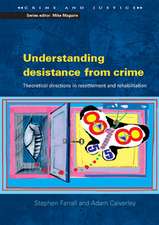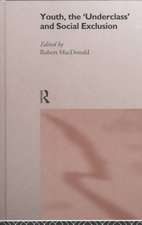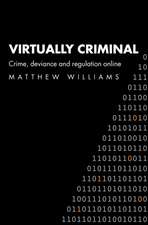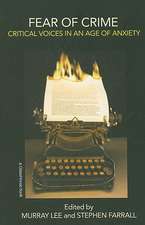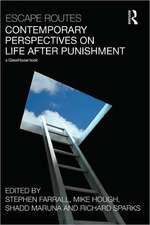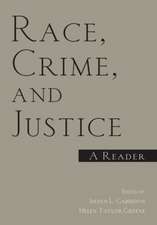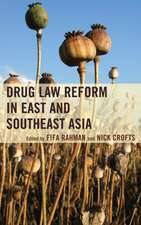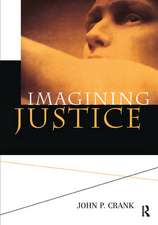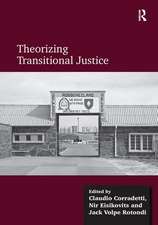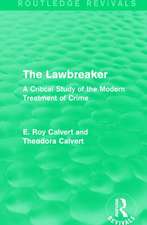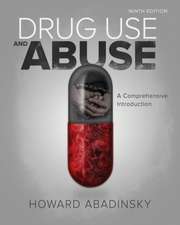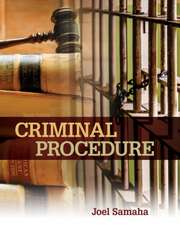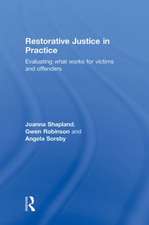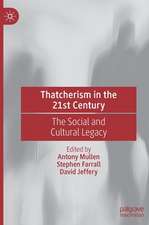Global Perspectives on Desistance: Reviewing what we know and looking to the future
Editat de Joanna Shapland, Stephen Farrall, Anthony Bottomsen Limba Engleză Hardback – 20 apr 2016
The book is the first to offer a global perspective on desistance and brings together international leading experts in the field from countries including the UK, Ireland, the Netherlands, Scandinavia, Spain, the USA, and Australia to set out what we know about desistance, and to advance our theoretical understanding. Drawing on leading studies, this book sets the academic agenda for future work on desistance and examines the implications and potential positive effects of this research on desistance processes among current offenders.
Global Perspectives on Desistance is divided into three sections:
- Agency, structure and desistance from crime,
- Life phases and desistance,
- Criminal justice and state interventions.
| Toate formatele și edițiile | Preț | Express |
|---|---|---|
| Paperback (1) | 386.95 lei 3-5 săpt. | +23.32 lei 7-13 zile |
| Taylor & Francis – 14 apr 2016 | 386.95 lei 3-5 săpt. | +23.32 lei 7-13 zile |
| Hardback (1) | 1167.58 lei 6-8 săpt. | |
| Taylor & Francis – 20 apr 2016 | 1167.58 lei 6-8 săpt. |
Preț: 1167.58 lei
Preț vechi: 1423.87 lei
-18% Nou
Puncte Express: 1751
Preț estimativ în valută:
223.41€ • 233.89$ • 184.86£
223.41€ • 233.89$ • 184.86£
Carte tipărită la comandă
Livrare economică 05-19 aprilie
Preluare comenzi: 021 569.72.76
Specificații
ISBN-13: 9781138850996
ISBN-10: 1138850993
Pagini: 320
Ilustrații: 70
Dimensiuni: 156 x 234 mm
Greutate: 0.57 kg
Ediția:1
Editura: Taylor & Francis
Colecția Routledge
Locul publicării:Oxford, United Kingdom
ISBN-10: 1138850993
Pagini: 320
Ilustrații: 70
Dimensiuni: 156 x 234 mm
Greutate: 0.57 kg
Ediția:1
Editura: Taylor & Francis
Colecția Routledge
Locul publicării:Oxford, United Kingdom
Public țintă
Postgraduate and UndergraduateCuprins
Introduction (Joanna Shapland, Stephen Farrall and Anthony Bottoms)
Section I: Agency, structure and desistance from crime
1. Mechanisms underlying the desistance process: Reflections on ‘A theory of cognitive transformation’ (Peggy C. Giordano)
2. Human agency, criminal careers and desistance (Christoffer Carlsson)
3. "I’ve always tried but I hadn’t got the willpower": Understanding pathways to desistance in the Republic of Ireland (Deirdre Healy)
4. Structural context and pathways to desistance (José Cid and Joel Marti)
Section II: Life phases and desistance
5. Key behavioral aspects of desistance from conduct problems and delinquency (Rolf Loeber, Magda Stouthamer-Loeber, and Lia Ahonen)
6. Learning to desist in early adulthood: the Sheffield Desistance Study (Anthony Bottoms and Joanna Shapland)
7. Observations from the Pathways to Desistance study: Some issues to consider in future work on desistance from adolescence to early adulthood (Edward P. Mulvey and Carol A. Schubert)
8. How important are life-course transitions in explaining desistance? Examining the extent to which marriage, divorce and parenthood account for the age-crime relationship in former juvenile delinquents (Arjan Blokland and Niek de Schipper)
9. Timing of change: Are life course transitions causes or consequences of desistance? (Torbjørn Skardhamar and Jukka Savolainen)
Section III: Criminal justice and state interventions
10. Understanding desistance in an assisted context: Key findings from tracking progress on probation (Stephen Farrall)
11. In search of desistance: Notes from an Australian study (Mark Halsey)
12. The increasing stickiness of public labels (Chris Uggen and Lindsay Blahnik)
13. Understanding and identifying desistance: an example exploring the utility of sealing criminal records (Megan C. Kurlychek, Shaun D. Bushway and Megan Denver)
14. The fuel in the tank or the hole in the boat? Can sanctions support desistance? (Fergus McNeill)
Afterword: diversity or congruence? (Joanna Shapland, Stephen Farrall and Anthony Bottoms)
Section I: Agency, structure and desistance from crime
1. Mechanisms underlying the desistance process: Reflections on ‘A theory of cognitive transformation’ (Peggy C. Giordano)
2. Human agency, criminal careers and desistance (Christoffer Carlsson)
3. "I’ve always tried but I hadn’t got the willpower": Understanding pathways to desistance in the Republic of Ireland (Deirdre Healy)
4. Structural context and pathways to desistance (José Cid and Joel Marti)
Section II: Life phases and desistance
5. Key behavioral aspects of desistance from conduct problems and delinquency (Rolf Loeber, Magda Stouthamer-Loeber, and Lia Ahonen)
6. Learning to desist in early adulthood: the Sheffield Desistance Study (Anthony Bottoms and Joanna Shapland)
7. Observations from the Pathways to Desistance study: Some issues to consider in future work on desistance from adolescence to early adulthood (Edward P. Mulvey and Carol A. Schubert)
8. How important are life-course transitions in explaining desistance? Examining the extent to which marriage, divorce and parenthood account for the age-crime relationship in former juvenile delinquents (Arjan Blokland and Niek de Schipper)
9. Timing of change: Are life course transitions causes or consequences of desistance? (Torbjørn Skardhamar and Jukka Savolainen)
Section III: Criminal justice and state interventions
10. Understanding desistance in an assisted context: Key findings from tracking progress on probation (Stephen Farrall)
11. In search of desistance: Notes from an Australian study (Mark Halsey)
12. The increasing stickiness of public labels (Chris Uggen and Lindsay Blahnik)
13. Understanding and identifying desistance: an example exploring the utility of sealing criminal records (Megan C. Kurlychek, Shaun D. Bushway and Megan Denver)
14. The fuel in the tank or the hole in the boat? Can sanctions support desistance? (Fergus McNeill)
Afterword: diversity or congruence? (Joanna Shapland, Stephen Farrall and Anthony Bottoms)
Notă biografică
Joanna Shapland is Edward Bramley Professor of Criminal Justice in the University of Sheffield and Director of the Centre for Criminological Research. She was awarded the Outstanding Achievement Award by the British Society of Criminology in 2013 and is Executive Editor of the International Review of Victimology.
Stephen Farrall is Professor of Criminology in the Centre for Criminological Research at the University of Sheffield. Stephen also edits the International Series on Desistance and Rehabiliation (published by Routledge).
Anthony Bottoms is Emeritus Wolfson Professor of Criminology in the University of Cambridge and Honorary Professor of Criminology in the University of Sheffield. He is also a Fellow of the British Academy. With Joanna Shapland, he co-directs the Sheffield Desistance Study.
Stephen Farrall is Professor of Criminology in the Centre for Criminological Research at the University of Sheffield. Stephen also edits the International Series on Desistance and Rehabiliation (published by Routledge).
Anthony Bottoms is Emeritus Wolfson Professor of Criminology in the University of Cambridge and Honorary Professor of Criminology in the University of Sheffield. He is also a Fellow of the British Academy. With Joanna Shapland, he co-directs the Sheffield Desistance Study.
Recenzii
"The study of desistance from crime has truly come of age with this impressive, international collection of some of the best research on the topic to date. Far from being the last word on desistance, the volume raises crucial, new questions for the next generation of studies in this fast-growing area."
Professor Shadd Maruna, Dean of the School of Criminal Justice, Rutgers University – Newark, USA
"Over the last 25 years, research on desistance from crime has burst on the criminological scene. Unfortunately, much of that research has focused solely on the U.S. This volume adds a much needed global perspective to the ongoing discussion. Drawing on empirical research from a wide range of countries, our knowledge of desistance from crime is expanded and enhanced. The section on criminal justice and state interventions in particular adds an important dimension to the desistance debate. While contentious issues remain unresolved, this book is a must read for researchers and policymakers interested in what it takes to move offenders away from crime."
John H. Laub, Distinguished University Professor, University of Maryland, USA
"This volume offers an impressive array of divergent perspectives on the process of desistance from crime, and successfully integrates these diverse outlooks into a coherent story. Drawing on an assortment of varied research methodologies and cultural settings, the authors take stock of the state of knowledge on desistance and provide a useful roadmap for future desistance research."
Lila Kazemian, Associate Professor, John Jay College of Criminal Justice, CUNY, USA
"In this very rich and truly international (albeit with a strong European base) collection, classical desistance discussions (e.g. hooks for change, social capital, cognitive and narrative changes, etc.) are updated and extended both theoretically (notably by integrating developmental theories), and in terms of research subjects (e.g. agency, and structural, economic, and cultural contexts). Importantly, this exciting edited book reveals how desistance theory now appears ready to start developing alternative treatment methods, and to move beyond a mere desistance paradigm (e.g. regarding criminal records or probation sanctions policies). This integrated volume reveals how mature desistance research has become."
Professor Martine Herzog-Evans, University of Rheims, France
Professor Shadd Maruna, Dean of the School of Criminal Justice, Rutgers University – Newark, USA
"Over the last 25 years, research on desistance from crime has burst on the criminological scene. Unfortunately, much of that research has focused solely on the U.S. This volume adds a much needed global perspective to the ongoing discussion. Drawing on empirical research from a wide range of countries, our knowledge of desistance from crime is expanded and enhanced. The section on criminal justice and state interventions in particular adds an important dimension to the desistance debate. While contentious issues remain unresolved, this book is a must read for researchers and policymakers interested in what it takes to move offenders away from crime."
John H. Laub, Distinguished University Professor, University of Maryland, USA
"This volume offers an impressive array of divergent perspectives on the process of desistance from crime, and successfully integrates these diverse outlooks into a coherent story. Drawing on an assortment of varied research methodologies and cultural settings, the authors take stock of the state of knowledge on desistance and provide a useful roadmap for future desistance research."
Lila Kazemian, Associate Professor, John Jay College of Criminal Justice, CUNY, USA
"In this very rich and truly international (albeit with a strong European base) collection, classical desistance discussions (e.g. hooks for change, social capital, cognitive and narrative changes, etc.) are updated and extended both theoretically (notably by integrating developmental theories), and in terms of research subjects (e.g. agency, and structural, economic, and cultural contexts). Importantly, this exciting edited book reveals how desistance theory now appears ready to start developing alternative treatment methods, and to move beyond a mere desistance paradigm (e.g. regarding criminal records or probation sanctions policies). This integrated volume reveals how mature desistance research has become."
Professor Martine Herzog-Evans, University of Rheims, France
Descriere
This book is the first to offer a global perspective on global perspective on desistance and bring together leading experts in the field from the UK, Ireland, Netherlands, Sweden, Germany, USA and Australia and draws on a range of international longitudal studies.
With contributions from Peggy C. Giordano; Christoffer Carlsson; Deirdre Healy; José Cid & Joel Marti; Rolf Loeber, Magda Stouthamer-Loeber & Lia Ahonen; Edward P. Mulvey & Carol A. Schubert; Arjan Blokland & Niek de Schipper; Torbjørn Skardhamar & Jukka Savolainen; Mark Halsey; Chris Uggen & Lindsay Blahnik; Megan C. Kurlychek, Shaun D. Bushway & Megan Denver; and Fergus McNeill.
With contributions from Peggy C. Giordano; Christoffer Carlsson; Deirdre Healy; José Cid & Joel Marti; Rolf Loeber, Magda Stouthamer-Loeber & Lia Ahonen; Edward P. Mulvey & Carol A. Schubert; Arjan Blokland & Niek de Schipper; Torbjørn Skardhamar & Jukka Savolainen; Mark Halsey; Chris Uggen & Lindsay Blahnik; Megan C. Kurlychek, Shaun D. Bushway & Megan Denver; and Fergus McNeill.

